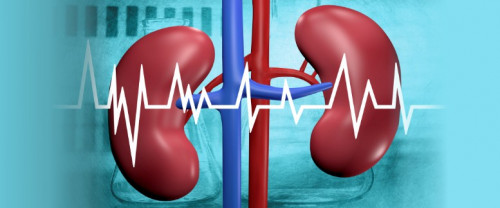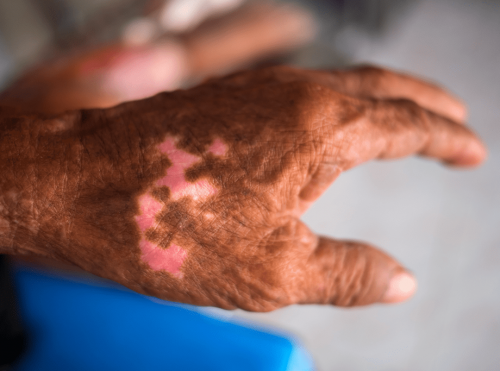Chronic kidney disease (CKD) is a condition when kidney function gradually declines due to damage to kidney tissue. Medically, CKD is defined as a decrease in the rate of renal filtration for 3 months or more. Chronic kidney disease (CKD) is a very common clinical problem in elderly patients and is associated with increased morbidity and mortality.
When the kidneys are damaged, their ability to do work is reduced. If the damage to the kidneys continues to get worse, these organs are not able to work properly and the person will suffer from chronic diseases. Kidney failure is the last (most severe) stage of chronic disease. Symptoms in patients with chronic kidney failure stages 1-3 are usually not visible. Usually, the symptoms of chronic kidney failure are only felt when they reach stages 4 and 5 due to the severity of the body's metabolic disorders.
Symptoms found in patients with CKD include:
- Uncontrolled high blood pressure
- Swelling in the feet and ankles
- Urinating a little
- Found urine in the blood
CKD is caused by damage to kidney tissue triggered by long-term disease. Some of the diseases that can be the cause are diabetes, hypertension, obesity, or cardiovascular disease. In addition, patients aged over 60 years, especially those who smoke and whose family has a history of CKD are also at high risk of developing CKD.

DETECTION OF CHRONIC KIDNEY DISEASE
Early detection is a preclinical activity to find risks before the disease fully develops. Early detection is very important to obtain evidence in order to prevent and further reduce the incidence of chronic disease. Detection for CKD must include all three components of a kidney health examination:
- Blood pressure measurement
- A blood test for serum creatinine and eGFR
- Urine test for albumin:creatinine ratio
Albuminuria, in people with or without diabetes mellitus, is ideally measured by a first void morning urine ACR. Transient elevations of urine ACR can be caused by diurnal variations in protein excretion, urinary tract infections, fluid overload or acute febrile illness, so a raised urine ACR should be confirmed on repeat measurement.

Similarly, a minimum of three reduced eGFR measurements, over at least a 3 month period, is used to confirm a diagnosis of CKD. The presence of a rapidly declining eGFR may also occur in acute kidney injury and should be repeated within 14 days. The majority of patients with early CKD (kidney function stages 1–3) will not ultimately progress to end-stage kidney disease for consideration of renal replacement therapy (ie. dialysis or transplantation) and can be primarily managed in general practice. Assessment and management should be guided by the stage of CKD as outlined in the table.
PT Isotekindo Intertama is the official authorized distributor and registered with the MINISTRY OF HEALTH for PABA-1000 ACR Analyzer products manufactured by Changsha Sinocare Inc. The ACR Monitoring System consists of the PABA-1000 ACR analyzer, mALB/Cr Reagent Kit, and control solution (level 1, level 2). The mALB/Cr Reagent Kit is intended for use with the PABA-1000 ACR Analyzer to quantitatively determine microalbuminuria, creatinine, and ACR (ratio of microalbuminuria and creatinine) in urine samples, as an aid to the diagnosis of renal failure disease.

The test sample uses urine which is relatively easier than blood samples, so that the test is relatively practical without invasive procedures that cause the patient's pain sensation. In addition, the inspection time only takes 6.8 minutes for each sample so that the benefits are obtained, namely the efficiency of time and energy from the operator.
The process of screening tests for CKD usually costs a lot of money. However, in the PABA-1000 ACR Analyzer, there is 1 type of reagent to measure 3 parameters of kidney function at once (microalbumin (mAlb), urine creatinine and albumin-creatinine ratio (ACR)) so that the total cost of the examination becomes more affordable and efficient.
If the measurement results increase, then immediately see a doctor to quickly get the right examination, diagnosis, and treatment.
Reference:
- American Kidney Fund. (2021). Chronic Kidney Disease (CKD) Symptoms, Treatment, Causes, and Prevention.
- NCBI. (2015). Chronic kidney disease in the elderly: evaluation and management.
- Australian Family Physician. Chronic kidney disease in the elderly Assessment and management







